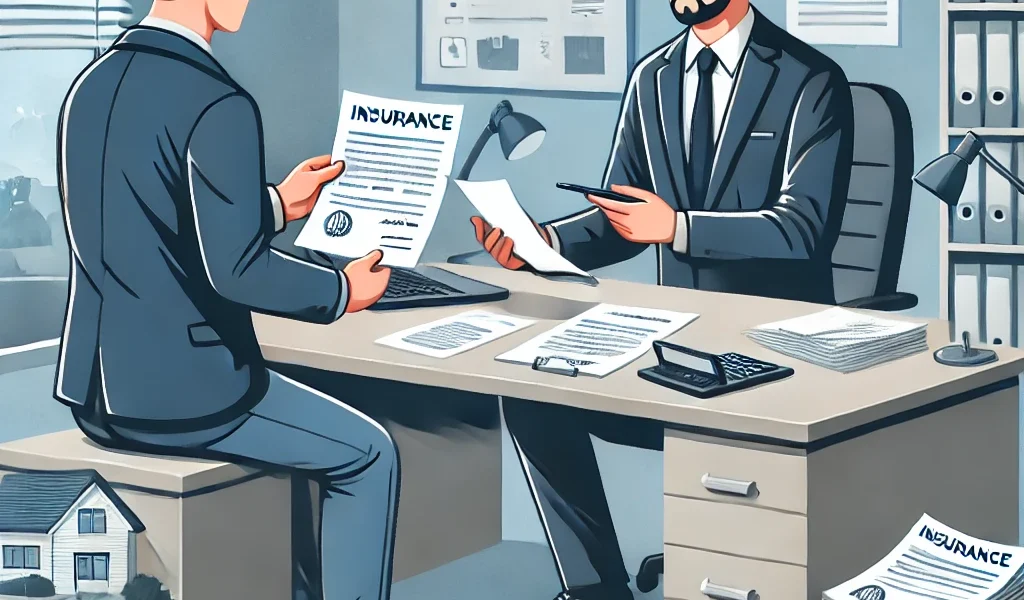Dealing with an insurance claim can be overwhelming, especially when the settlement offer from your insurer doesn’t match your expectations. Many policyholders accept the first offer without realizing they have the right to negotiate. Knowing how to effectively negotiate your insurance claim can help you secure a fair payout.
This DIY guide will provide you with practical steps, strategies, and essential tips to maximize your insurance claim settlement without unnecessary legal complications.
1. Understanding Your Rights and Policy Coverage
Before negotiating, it’s crucial to have a deep understanding of your insurance policy. Carefully review your policy to determine:
- The type of coverage you have
- Any exclusions and limitations
- The deductible amount
- The claim filing deadlines
This knowledge helps you make a strong case when disputing an unfair settlement offer.
2. Gather Strong Documentation
The key to a successful insurance negotiation is solid evidence. Ensure you have:
- Photographic or video proof of damages or injuries
- Receipts, invoices, and estimates from professionals (e.g., contractors, medical providers)
- Police reports (if applicable)
- Medical records and bills for health-related claims
- Eyewitness statements
The more comprehensive your documentation, the stronger your case will be during negotiations.
3. Do Not Accept the First Settlement Offer Immediately
Insurance companies often start with a low settlement offer, assuming claimants will accept it without question. While it may be tempting to take the first offer, always analyze it carefully and compare it with your estimated damages.
Steps to Counter a Low Offer:
- Remain Calm and Professional: Avoid showing frustration; approach the situation with logic and patience.
- Request a Detailed Explanation: Ask the insurance adjuster to explain how they arrived at the settlement amount.
- Compare the Offer with Your Own Estimates: Use your collected documents to justify why their offer is insufficient.
4. Strengthen Your Case with a Counteroffer
If the initial offer is lower than expected, submit a counteroffer. Your counteroffer should be well-reasoned and backed by evidence. Here’s how to craft a compelling counteroffer:
Elements of an Effective Counteroffer Letter:
- Acknowledge the Insurer’s Initial Offer: Politely reference their offer and express your concern.
- Provide Justification: Use facts, figures, and documentation to support your claim.
- Suggest a Reasonable Settlement Amount: Ask for an amount slightly higher than what you expect so you have room to negotiate.
5. Communicate Strategically with the Insurance Adjuster
Effective communication can make a significant difference in claim negotiations. Keep the following points in mind:
- Be Persistent But Polite: Avoid hostility; negotiations should remain professional.
- Keep Records of All Communications: Document phone calls, emails, and meetings.
- Stick to Facts, Not Emotions: Emotional appeals rarely influence insurance companies; solid evidence does.
- Know When to Escalate: If negotiations stall, consider escalating the matter to a supervisor or independent arbitrator.
6. Leverage Independent Assessments
If your insurer’s estimate doesn’t align with your damages, getting an independent assessment can help strengthen your case. Consider hiring:
- Public Adjusters (for property damage claims)
- Independent Medical Examiners (for health or injury claims)
- Contractors or Appraisers (for vehicle or property repairs)
These professionals can provide unbiased assessments that may support your claim.
7. Be Prepared to Appeal or Seek Legal Help
If your negotiations do not lead to a fair settlement, you have the right to appeal the decision. Steps include:
- Filing a Formal Appeal: Review your insurer’s appeal process and submit additional documentation.
- Involving a Consumer Advocacy Group: Some organizations can assist with disputes.
- Consulting a Legal Expert: If the insurer acts in bad faith, a lawyer may help.
However, legal action should be your last resort since it can be costly and time-consuming.
8. Tips to Maximize Your Settlement
- Act Quickly – File and follow up on your claim promptly.
- Stay Organized – Keep all paperwork and evidence in one place.
- Use Policy Language – Speaking in insurance terms helps you appear knowledgeable.
- Be Patient – Negotiations take time; don’t rush into accepting an unfair offer.
Frequently Asked Questions (FAQs)
Q1. How long does the negotiation process take?
It varies. Simple claims may settle in a few weeks, while complex cases can take months.
Q2. Can I negotiate even after receiving a settlement check?
Once you sign a release form, further negotiations become difficult. Review all documents carefully before accepting a settlement.
Q3. What if my insurer refuses to negotiate?
If your insurer refuses to negotiate fairly, escalate the issue, file an appeal, or seek legal counsel.
Q4. Is hiring a public adjuster worth it?
For large or complex claims, a public adjuster can often help negotiate a higher payout.
Q5. Does negotiating affect future premiums?
Negotiating itself does not impact premiums, but multiple claims within a short period might.
Final Thoughts
Negotiating a fair insurance claim settlement doesn’t have to be intimidating. By understanding your policy, gathering strong documentation, making a counteroffer, and maintaining effective communication, you can increase your chances of receiving the compensation you deserve.



